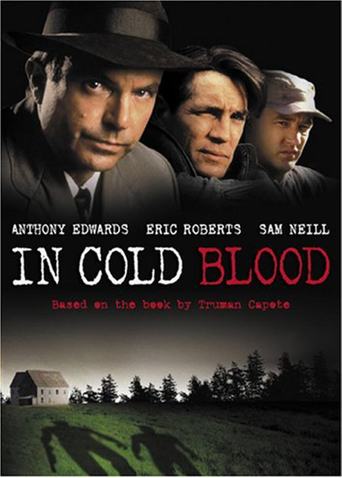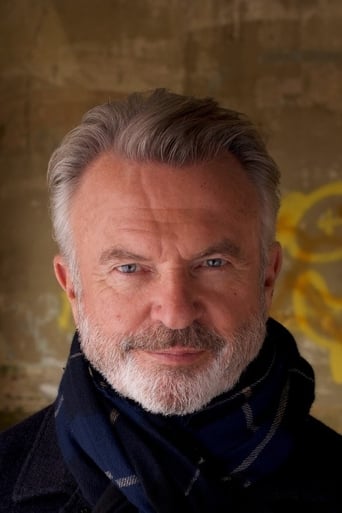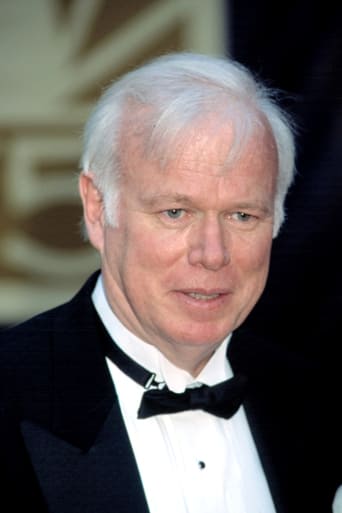

In Cold Blood (1996)
At the end of the 1950s, in a more innocent America, the brutal, meaningless slaying of a Midwestern family horrified the nation. This film is based on Truman Capote's hauntingly detailed, psychologically penetrating nonfiction novel. While in prison, Dick Hickock, 20, hears a cell-mate's story about $10,000 in cash kept in a home safe by a prosperous rancher. When he's paroled, Dick persuades ex-con Perry Smith, also 20, to join him in going after the stash. On a November night in 1959, Dick and Perry break into the Holcomb, Kansas, house of Herb Clutter. Enraged at finding no safe, they wake the sleeping family and brutally kill them all. The bodies are found by two friends who come by before Sunday church. The murders shock the small Great Plains town, where doors are routinely left unlocked. Detective Alvin Dewey of the Kansas Bureau of Investigation heads the case, but there are no clues, no apparent motive and no suspects...
Watch Trailer
Cast


Reviews
Too much of everything
The Worst Film Ever
Fanciful, disturbing, and wildly original, it announces the arrival of a fresh, bold voice in American cinema.
It is an exhilarating, distressing, funny and profound film, with one of the more memorable film scores in years,
Like others, I have seen and studied most of the books and films concerning the Clutter Killings, including a few dramatic works thematically based on the actions and psycho-mythology of the participants to the crime -- including Capote himself. As to Capote, I cannot forgive him for willfully withholding Perry Smith's confessions, intimacies and writings from even the defense counsels. I believe truths and facts Capote "reserved" for his "book," which required for Capote two guilty verdicts and capital punishment, would almost certainly have sustained a successful insanity defense for Perry Smith even under the old McNaughton Rule. Capote himself could never write another major literary work after "In Cold Blood." Shame and guilt. In my opinion, he willingly encouraged and planned the brutal capital punishment to provide the spectacular ending he required for his book/drama. To him, both men HAD to die for his book to succeed. The book had to justify itself by pretending it was about the horror of capital punishment. His actions and silence assured that ice-cold conclusion.Capote's book is not truth. It is not factual or journalistic. It is drama and melodrama spiced with his own creatively psychotic imagination. What most people consider the virtues of the contemporaneous first movie are stark images of Capote's mind, which may have been the most cold-blooded aspect of all. No wonder viewers ironically but necessarily prefer Blake's performance. That actor IS the nightmare from Capote's dishonest imaginings.So who is to say how the two killers should be played? Who is to judge what could make an essentially poetic psychotic snap from excessive courtesy and kindness to "do it now" killing? I agree with the few who see in Eric Roberts' work a magnificent performance, Shakespearean in its range, yet played with heartbreaking sincerity. Anthony Edwards takes a much safer "attitude mode" to create a smarmy Hickok; but he is one-dimensional and boring, with only a few notes in his television range. Roberts is almost four-dimensional, adding physical weakness and agony to a powerful animal body, a Frankenstein Creature who thinks in poetry and knows exactly what NOT to do. Like Leopold apropos Loeb, Robert's Perry Smith is hopelessly in love with an evil man. Without Hickok or a man of his particularities, Perry Smith would not have brought his psychotic mind into a world of horrors. He fears himself more than he fears anything else in life.Given the freedom from Capote's death grip on the consciousness of the Clutter killings, Roberts and Edwards are free to create original personalities and psychoses to craft a different and new production of the drama. Same facts, some of the same lines from the case record, but deeper, more complex, with clearly titanic psychotic stresses -- indeed Roberts is so good at this fluidic madness that he physically and facially demonstrates in every moment how little awareness he has of where or who he is.What many of our reviewers dislike about this film, Roberts in particular, is that cold-blooded killing isn't shown the way they expect and have been manipulated to demand. That is because here we are seeing a far more profoundly realistic "interpretation of life and death" than Capote could ever create -- a real Tragedy.The actual cold-blooded killer, Mr. Capote, and his hypocritically artistic "non-fiction novel" do not control these interpretations and performances.If "In Cold Blood" and Capote's effect on life, literature and truth matters as much as scholars say, then it takes guts as well as talent to portray the truth, or a version of the truth, that is not the rank, cowardly lie drawn up from the fathoms of Capote's own abyss.
In Cold Blood was one of several 60s films that created a new vision of violence in the Hollywood film industry. Capote coined the phrase "nonfiction novel" to describe the book on which this film is based, and the spirit of that form was carried over into the film script, which he co-wrote. Despite the fact that we were well into the era of color film, Richard Brooks elected to present this film in black and white to underscore both the starkness of the landscape and the bleakness of the story. This is the first problem with the TV remake --color changes the tone of the story. In addition, the confinement of shooting a film for TV makes reduces the options of how the shots are framed and focused. As a result, we lose the dramatic clash which makes the second part of the original film (police interviews, trial, imprisonment, and execution) so claustrophobic. On the small screen, it's just another version of Law and Order spin-offs. Hollywood's search for scripts continuously takes it back to movies that were successful in another age. Usually, that's a mistake, and this is no exception.All of the actors are competent. The script is OK. The directing doesn't get in the way. It's just that the movie doesn't work as well as the original precision instrument. It doesn't hook the viewer into the ambivalence toward Smith and Hickock that the original film provokes. At the end of the TV version, we are left with the feeling: "Ho hum, who cares?"See the original first, on as large a screen as you can, then watch the TV version simply to understand why the first one was such an important film in 1967.Wouldn't hurt to also go on line and read a bit about Capote and the original book. It will help you to understand the extraordinary effort he put into the material, and also some of the controversy surrounding both the book and the movie.I actually only gave this a 4 because I save the bottom 3 rankings for true bombs--the kind that enrage you about having been sucked into spending an
It boggles the mind. If they think another nickel can be squeezed out of a piece of material, they'll squeeze. The only reason I can think of that this story was retold was that the producers figured the audience was so stupid that they either never had seen the original or didn't know that there WAS an original. Well, maybe the assumption isn't that far off base. As a collective we seem to have dropped a good couple of IQ points somewhere along the way. Back in the 1960s Stanley Kaufman wrote an essay on "the film generation." In one of his classes he brought up Preminger's Joan of Arc, and his students did an impromptu comparison with Dreyer. His students don't do that anymore. They can't. They never heard of Dreyer. In the original "In Cold Blood," there is a lot of artsiness and pop psychology. It isn't a timeless classic, but it's a well-made movie. I don't know why anyone felt a remake was a good idea except, as I suggested, there might be another nickel left in it. The shot-by-shot remake of Psycho was a disgrace. It wasn't that long ago, by geological standards, that when a movie became a classic it was left alone. Can anyone imagine making "Gone With the Wind" now, without its being followed up by "Gone With the Wind, Part 2: Scarlett's Revenge"? What an insult this movie is. It's not badly done, but the motives behind its creation are scurrilous.
Ok first of all I know it's a remake of a great film so I will not bore you with the story you already know. Now I think that this is a little better because of the talent of Eric Roberts and Anthony Edwards. It's a story that should be seen in all retrospect of this film and the original. I really think that both films have great qualities and should be seen on DVD or Video. I own it on DVD(The one with Eric Roberts) and it's great. It's hard to find on DVD but I have one and if you can find it buy it. Out of 4 stars I give it 3 1/2 stars.




